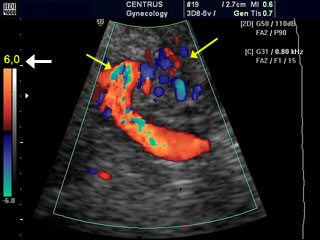When faced with mental health challenges that require intensive care and support, a partial hospitalization program (PHP) can be a beneficial and effective option. Partial hospitalization bridges the gap between inpatient and outpatient care, offering individuals a structured environment with comprehensive therapeutic interventions while allowing them to return home at the end of each day.
Table of Contents
What Happens During a Partial Hospitalization Program?
A partial hospitalization program offers individuals struggling with mental health challenges a structured, comprehensive, and supportive environment to embark on their path to recovery. With a combination of group and individual therapy, medication management, and more, participants gain essential skills and support needed to improve their mental well-being.
Assessment and Evaluation
Upon entering a partial hospitalization program, the first step is an initial assessment and evaluation. A team of mental health professionals, including psychiatrists, psychologists, therapists, and counselors, will conduct a thorough evaluation of the individual’s mental health condition, medical history, and social background. This assessment helps in determining the appropriate treatment plan and tailoring it to meet the unique needs of the individual.
Individualized Treatment Plan
After the assessment, an individualized treatment plan is developed for each participant. This plan outlines the specific therapeutic interventions, goals, and objectives tailored to address their particular challenges and support their recovery journey. The treatment plan is continuously monitored and adjusted as needed to ensure progress and success throughout the program.
Structured Daily Schedule
Partial hospitalization programs operate on a structured daily schedule, mirroring the intensity of inpatient treatment. Participants attend various therapeutic activities and group sessions during the day, typically from morning to late afternoon. The structured schedule provides a sense of stability and predictability, which can be beneficial for individuals experiencing mental health difficulties.
Group Therapy Sessions
Group therapy is a core component of partial hospitalization programs. Participants engage in various group therapy sessions facilitated by experienced mental health professionals. These sessions provide a safe and supportive environment for individuals to share their experiences, emotions, and challenges. Group therapy fosters a sense of community and allows participants to learn from each other’s perspectives, fostering empathy and understanding.
Individual Therapy
In addition to group therapy, participants also receive one-on-one individual therapy sessions with licensed therapists or counselors. These sessions offer a private space for individuals to delve deeper into their personal challenges, emotions, and thought patterns. Individual therapy allows for personalized attention and the development of coping strategies tailored to the individual’s needs.
Medication Management
For those who require medication as part of their treatment plan, partial hospitalization programs offer medication management. Psychiatrists or medical professionals closely monitor the effects and side effects of prescribed medications, making adjustments as necessary to optimize the individual’s response and overall well-being.
Psychoeducation
Psychoeducation is an integral part of partial hospitalization programs. Participants receive education about their mental health condition, coping strategies, stress management techniques, and communication skills. This knowledge equips individuals with the tools they need to navigate challenges both during the program and beyond.
Gradual Transition to Outpatient Care
As participants progress in their recovery, partial hospitalization programs facilitate a gradual transition to outpatient care. The frequency of attendance may decrease, allowing individuals to slowly reintegrate into their daily lives while continuing to receive ongoing support.
What Kind of Addictions Can Be Treated Through a PHP?
Partial Hospitalization Programs (PHPs) offer comprehensive and intensive treatment for a wide range of substance addictions. The program’s structured and supportive environment is well-suited to address various types of addictions, including:
- Alcohol Addiction
- Drug Addiction
- Opioid Addiction
- Stimulant Addiction
- Prescription Medication Abuse
- Polydrug Addiction
- Co-Occurring Disorders
Who Should Consider a PHP?
Partial Hospitalization Programs (PHPs) for addiction are designed to meet the needs of individuals facing significant challenges in overcoming substance abuse. If you or someone you know is struggling with addiction and requires intensive care and support, a PHP may be a suitable option. PHPs are ideal for those who have completed detoxification or inpatient treatment and need a structured and supportive environment to continue their recovery journey. Additionally, individuals who have experienced relapses or find it challenging to maintain sobriety in traditional outpatient settings can benefit from the higher level of care and frequent therapeutic interventions offered by a PHP.











